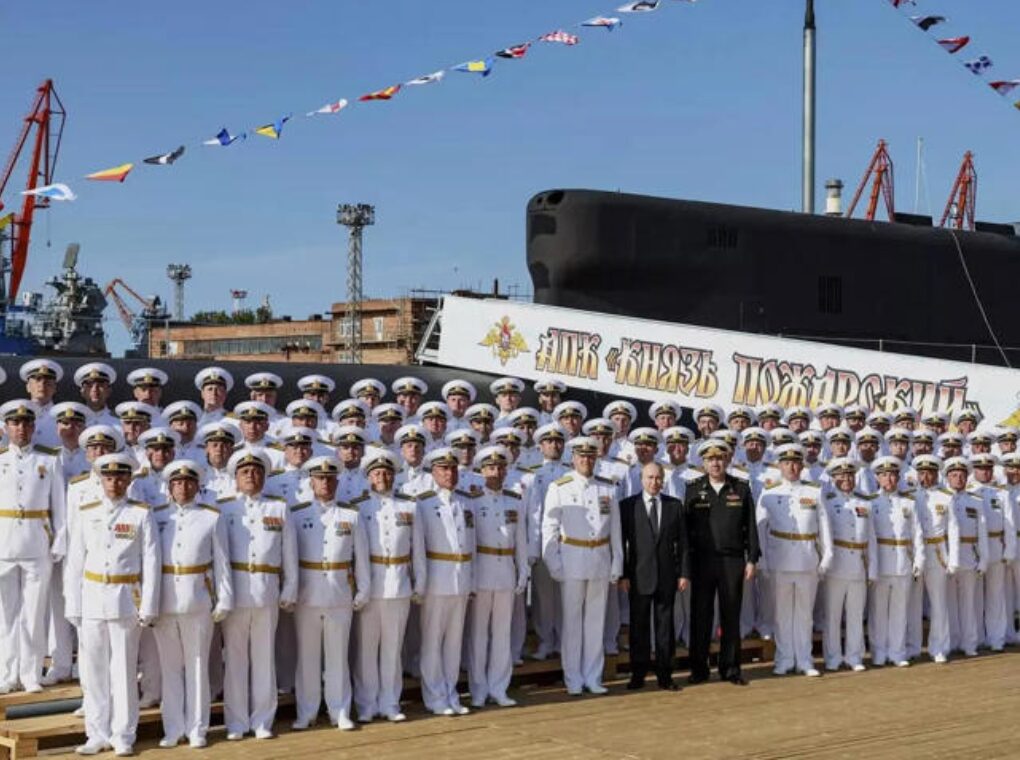In a rare move reflecting the growing strain of war, Russia has cancelled its high-profile annual Navy Day parade, traditionally held in the port city of St. Petersburg on the last Sunday of July. The Kremlin announced the cancellation late Saturday, citing “security reasons” but providing no specific details about the threat.
“The decision is linked to the overall situation. Security reasons are of utmost importance,” Kremlin spokesperson Dmitry Peskov told reporters, as quoted by news agency AFP.
The abrupt cancellation of the grand maritime celebration has sparked questions about Russia’s internal vulnerabilities, particularly as Ukraine continues to escalate strikes on Russian naval assets. Since the start of Moscow’s full-scale invasion of Ukraine in 2022, Kyiv has increasingly targeted naval facilities, ships, and infrastructure, especially in the Black Sea region.
A Symbolic Setback
Navy Day is a longstanding tradition in Russia, commemorating the strength and heritage of its naval forces. Reinvigorated under President Vladimir Putin in the early 2000s, the annual event typically features an impressive display of military hardware, including warships, submarines, maritime aircraft, and thousands of uniformed personnel. The spectacle, often attended by Putin himself and other high-ranking officials, serves as a powerful symbol of national pride and military prowess.
Beyond its domestic significance, the event has also served as a platform to project Russia’s geopolitical presence and maritime dominance, especially as the country seeks to expand influence in contested waters like the Arctic and the Black Sea.
In recent years, amid deepening tensions with the West and NATO, the Navy Day parade has taken on added symbolic weight. Last year’s event included tributes to sailors killed in combat and renewed vows to bolster Russia’s naval strength.
Rising Threats
The decision to cancel this year’s parade underscores the evolving nature of the Ukraine conflict, which began with Russia’s annexation of Crimea in 2014 and escalated dramatically in 2022. Ukrainian forces, armed with Western-supplied long-range weapons and advanced drone technology, have struck several high-value naval targets in recent months.
Observers believe the security risks surrounding such a high-profile event may have outweighed the symbolic value this year, especially with top military and government figures typically in attendance.
Strategic Calculations
Analysts say the cancellation may reflect concerns about potential Ukrainian attacks during the event, or broader fears of domestic unrest or sabotage.
“This isn’t just about avoiding embarrassment; it’s about managing real operational risks,” said a European defense analyst. “The fact that Russia is scaling back such a symbolic showcase tells us a lot about the pressure its military is under.”
As the war grinds on with no clear resolution in sight, both sides continue to jockey for strategic and symbolic advantage—on land, at sea, and in the information space.
For now, the silence in St. Petersburg’s harbor stands in stark contrast to the usual thunder of salutes and flyovers—a quiet but telling admission of how far-reaching the consequences of the war have become.
